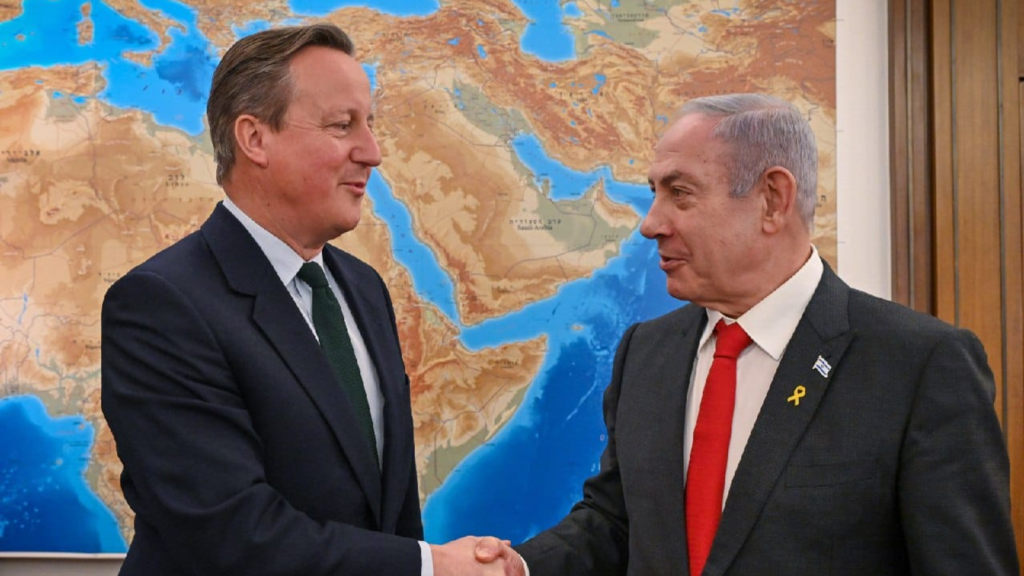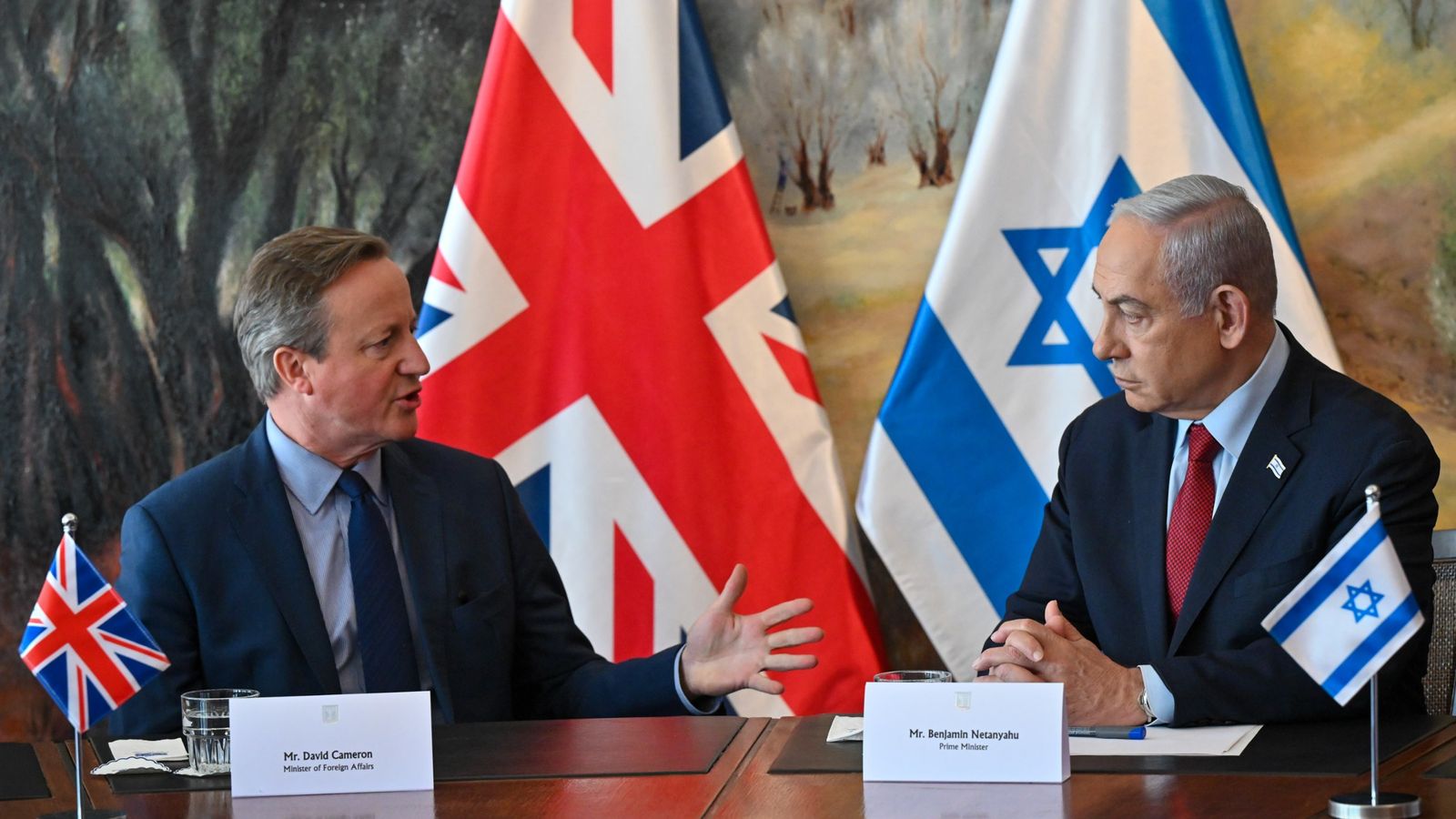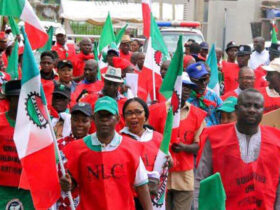
Benjamin Netanyahu has informed UK Foreign Secretary Lord Cameron that Israel will assert its autonomy in determining how to counter an Iranian attack.
Asserting Israel’s sovereignty, he emphasized his government’s commitment to take all essential measures to safeguard the nation during discussions that the British government had anticipated would mitigate escalation.
Netanyahu has consistently pledged to retaliate against the unprecedented missile and drone assault over the weekend. In response, Lord Cameron advised that any retaliation should be strategic and restrained.
Following the meeting with Netanyahu, Lord Cameron addressed reporters in Jerusalem, expressing solidarity and denouncing Iran’s “appalling” attack.
He continued: “We hope that anything Israel does is as limited and as targeted and as smart as possible.
“It’s in no-one’s interest that we see escalation, and that is what we said very clearly to all the people I’ve been speaking to here in Israel.”
After the meeting, the Israeli prime minister said: “I want to make it clear – we will make our own decisions, and the State of Israel will do everything necessary to defend itself.”
Mr. Netanyahu’s comments will solidify the perception in Western capitals that Israel is prepared to act against Iran and that their ability to demand moderation will soon come to an end.
Israel is well aware of the worries expressed in the US and Europe regarding the war’s intensifying regionally. Western leaders can find solace, meanwhile, in the fact that Israeli officials are attempting to capitalize on the diplomatic backing they have received in the wake of Iran’s attacks, which have prompted international censure and the prospect of fresh sanctions against Tehran.
It is plausible that Mr. Netanyahu may not wish to undermine that coalition by waging a retaliatory action that sparks a full-scale conflict in the region.
A diplomatic effort to stop that from happening is planned to include visits to Israel by a number of Western foreign ministers, including Lord Cameron.
Lord Cameron conferred with Israeli Foreign Affairs Minister Israel Katz and President Isaac Herzog before to his meeting with Mr. Netanyahu.
In addition, the British Foreign Secretary is to meet with Palestinian Authority Prime Minister Muhammad Mustafa while in the Occupied Palestinian Territories.
Lord Cameron is set to advocate for coordinated sanctions against Iran during the G7 ministers’ meeting in Italy.
He has already demanded that other nations enact policies aimed at limiting Iran’s influence, accusing Tehran of being “behind so much of the malign activity” in the Middle East.
Israel is urging its friends to label the Islamic Revolutionary Guard Corps (IRGC), a significant military, political, and economic power in Iran, as a terrorist organization, while the US and the EU are contemplating more penalties.
READ ALSO: Israel Vows Retaliation Following Iran’s Strikes, Amid Global Calls for Restraint
After Iran launched more than 300 drones and missiles into Israel in an unprecedented direct strike overnight on Saturday, the Israeli government has vowed again and time again to retaliate.
With assistance from the US, UK, France, and Jordan, Israel’s air defense systems stopped nearly all of the rockets.
Iran launched a direct attack on Israel in retaliation for a strike that killed senior Iranian military commanders in Syria on April 1.
Although it has not officially acknowledged it, it is generally accepted that Israel was responsible for the strike.
In a Tuesday night meeting with Mr. Netanyahu, UK Prime Minister Rishi Sunak cautioned that “significant escalation will only deepen instability in the region” and stated, “This is a moment for calm heads to prevail.”
While in Israel, Lord Cameron will try to bolster Mr. Sunak’s call for moderation and increase pressure on its authorities to take further steps to permit humanitarian aid into Gaza; nevertheless, he is treading carefully diplomatically.
The foreign secretary will not like to give the impression that he is hectoring an ally that has just had an unprecedented attack on its territory.
For this reason, Lord Cameron is also discussing the necessity of further sanctions being placed on Iran by Western powers and the necessity for Hamas to release its hostages.
In addition to expressing solidarity and support, his presence in Jerusalem serves as a warning to Israeli authorities that any further escalation would be counterproductive to both their interests and the interests of the global community.









Leave a Reply